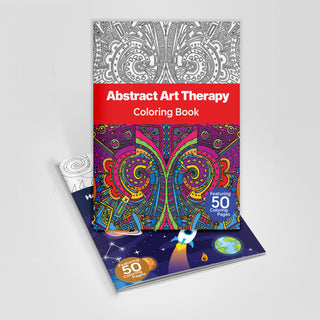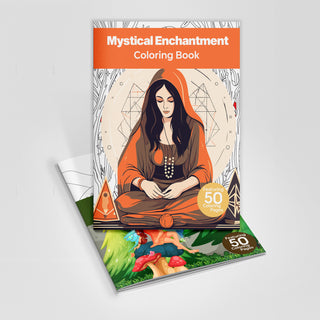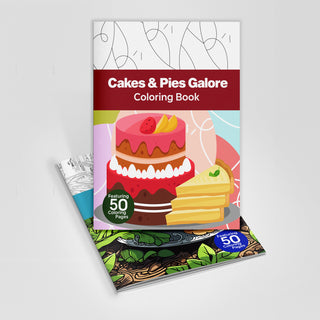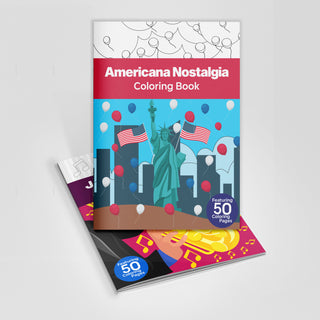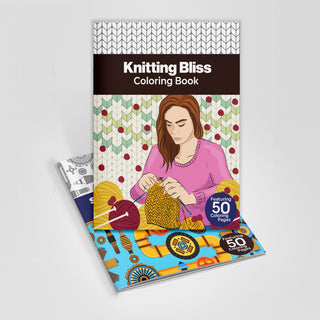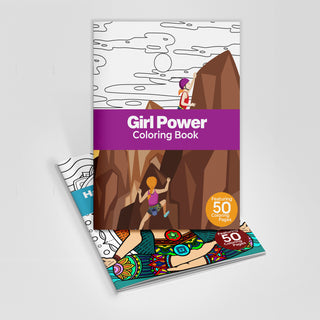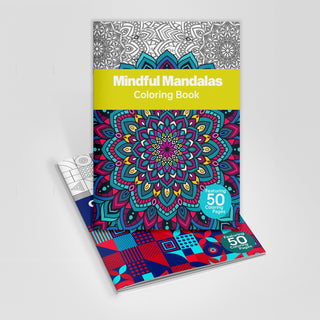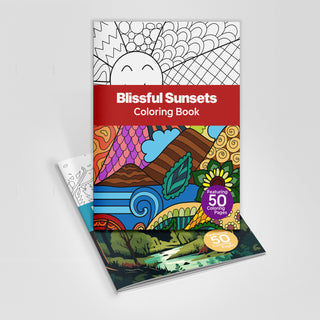Do you ever feel like your worries and anxieties are taking over your life? Do you find yourself constantly struggling to keep your head above water, always feeling like you're just one step away from drowning?
If so, you're not alone. Anxiety is a common experience that affects millions of people around the world, and it can be incredibly overwhelming and debilitating.
But the good news is that there are ways to overcome anxiety and take back control of your life. And that's where our online journal, "Beating Worry And Anxiety," comes in.
This comprehensive guide is designed to help you understand what anxiety is, how it affects you, and most importantly, how you can overcome it.
With chapters on a wide range of different techniques and approaches, from mindfulness and meditation to diet and physical exercise, this journal provides you with the tools and strategies you need to manage your anxiety and live a happier, more fulfilling life.
Whether you're dealing with mild anxiety or a more severe form of the condition, "Beating Worry And Anxiety" is the perfect companion for your journey towards healing and recovery.
So if you're ready to take the first step towards overcoming your anxiety and living your best life, join us today and start your journey towards a brighter, more peaceful tomorrow.
What Is Anxiety
Anxiety is a natural and common human emotion that is characterized by feelings of worry, fear, or unease about a future event or situation that may be uncertain or potentially harmful.
While it is normal to feel anxious from time to time, for some people, anxiety can become persistent and overwhelming, interfering with their daily activities and quality of life.
Anxiety can manifest in a variety of ways, such as physical symptoms like sweating, trembling, or an increased heart rate, as well as psychological symptoms like racing thoughts, difficulty concentrating, and irritability.
It can also lead to avoidance behaviors, where individuals may try to avoid situations that trigger their anxiety.
There are many different types of anxiety disorders, including generalized anxiety disorder, panic disorder, social anxiety disorder, and obsessive-compulsive disorder.
It's important to seek help from a mental health professional if you are experiencing persistent anxiety symptoms that are affecting your daily life.
Do I Have Anxiety?
Anxiety is a normal and natural response to stress or perceived threats, but for some people, anxiety can become overwhelming and interfere with daily life.
Here are some signs and symptoms that may indicate you have anxiety:
- Excessive Worrying: Feeling worried or anxious most of the time, even when there is no clear reason to be anxious.
- Physical Symptoms: Anxiety can cause physical symptoms such as a racing heart, sweaty palms, shortness of breath, trembling, and muscle tension.
- Avoidance Behaviors: Avoiding situations or activities that may trigger anxiety, such as social events, public speaking, or flying.
- Negative Thoughts: Feeling irritable or on edge, having trouble concentrating, and experiencing negative or catastrophic thoughts.
- Sleep Disturbances: Difficulty falling asleep, staying asleep, or experiencing restless sleep due to worry or anxiety.
- Panic Attacks: Sudden and intense feelings of fear or panic, which may include symptoms such as sweating, heart palpitations, trembling, and a feeling of impending doom.
RELATED: 20 Crystals For Anxiety And Panic Attacks And How To Use Them
Ways To Overcome Anxiety
There are many different ways to overcome anxiety, and what works for one person may not work for another.
Here are a few examples of techniques and strategies that can be helpful:
- Mindfulness Meditation: A practice that involves focusing on the present moment without judgment, which can help individuals feel more grounded and reduce anxiety.
- Exercise: Regular exercise can help reduce symptoms of anxiety by increasing feel-good hormones and reducing stress.
- Relaxation Techniques: Techniques like deep breathing, progressive muscle relaxation, and guided imagery can help individuals feel more calm and relaxed.
- Social Support: Talking to trusted friends, family members, or a mental health professional can provide emotional support and help individuals feel less alone in their struggles with anxiety.
- Lifestyle Changes: Making healthy lifestyle choices, like getting enough sleep, eating a healthy diet, and reducing alcohol and caffeine intake, can help reduce anxiety symptoms.
For more techniques, make sure to download our free online journal!
How Overcoming Anxiety Can Change Your Life?
Overcoming anxiety can have a profound impact on your life in a variety of ways.
Here are some potential benefits:
- Improved Mental Health: When anxiety is no longer controlling your life, you may experience increased happiness, peace of mind, and a more positive outlook on life.
- Better Physical Health: Anxiety can take a toll on your physical health, leading to symptoms like headaches, stomachaches, and insomnia. Overcoming anxiety can help alleviate these physical symptoms and improve your overall health.
- Better Relationships: Anxiety can strain relationships with friends, family, and romantic partners. By overcoming anxiety, you may be better able to communicate effectively, manage conflict, and maintain healthy relationships.
- Improved Career Success: Anxiety can interfere with job performance and limit career opportunities. Overcoming anxiety can help you feel more confident in your abilities, take risks, and pursue career goals.
- Increased Self-Esteem: Anxiety can be associated with negative self-talk and low self-esteem. Overcoming anxiety can help you feel more positive about yourself and your abilities.
What Is A Journal About Anxiety?
A journal about overcoming anxiety is a tool designed to help individuals manage and overcome anxiety through self-reflection and introspection.
It can provide a safe and private space to process and manage anxious thoughts and feelings, as well as track progress over time.
Typically, a journal about overcoming anxiety will include prompts and exercises that encourage individuals to identify and challenge their anxious thoughts, develop coping strategies, and build resilience.
Examples of prompts might include:
- Write about a recent situation that made you anxious. What were your thoughts and feelings? How did you react? What could you have done differently?
- List five things you can do when you feel anxious to help calm yourself down.
- Write about a time when you successfully managed your anxiety. What did you do? How did it feel? How can you apply that experience to future situations?
- Identify three negative thoughts you have about yourself when you feel anxious. Write down evidence that contradicts those thoughts.
- Write a letter to yourself, offering words of encouragement and support during a difficult time.
A journal about overcoming anxiety can be a valuable tool for anyone struggling with anxiety, regardless of the severity of their symptoms.
It can provide a sense of control and empowerment, as well as a record of progress and growth.
How Can Reading This Journal Be Beneficial?
Using a journal to overcome anxiety can be incredibly beneficial in a number of ways:
- Encourages Self-Reflection And Introspection: A journal provides a safe space to explore and process anxious thoughts and feelings, and to identify patterns and triggers.
- Develops Coping Strategies: Journaling can help individuals develop effective coping strategies for managing anxiety, such as mindfulness techniques, positive self-talk, and relaxation exercises.
- Builds Resilience: By recording and reflecting on their experiences, individuals can build resilience and develop a more positive mindset.
- Tracks Progress: A journal provides a record of progress over time, which can be motivating and reassuring during difficult periods.
The "Beating Worry And Anxiety" online journal is an excellent resource for anyone looking to overcome anxiety.
It offers a variety of techniques and strategies for managing anxiety, including mindfulness and meditation.
The journal also provides a structured and guided approach, with clear prompts and exercises designed to help individuals explore and manage their anxiety in a supportive and empowering way.
Additionally, the online format of the journal means that it is accessible and convenient, with the ability to be used from anywhere with an internet connection.
It also provides a level of privacy and confidentiality that traditional paper journals may not offer.
RELATED: 180 Gentle Quotes About Nervousness To Decrease Anxiety And Bring A Sense Of Calm
Quotes
To encourage you to start overcoming your anxiety, here are some famous quotes that will inspire you to continue on the path of healing:
- "The greatest weapon against stress is our ability to choose one thought over another." - William James
- "You don't have to control your thoughts. You just have to stop letting them control you." - Dan Millman
- "Anxiety does not empty tomorrow of its sorrows, but only empties today of its strength." - Charles Spurgeon
- "The only way to get rid of the fear of doing something is to go out and do it." - Susan Jeffers
- "Worrying is carrying tomorrow's load with today's strength- carrying two days at once. It is moving into tomorrow ahead of time. Worrying doesn't empty tomorrow of its sorrow, it empties today of its strength." - Corrie Ten Boom
- "If you want to conquer the anxiety of life, live in the moment, live in the breath." - Amit Ray
- "If you trade your authenticity for safety, you may experience the following: anxiety, depression, eating disorders, addiction, rage, blame, resentment, and inexplicable grief." - Brené Brown
- "You must learn to let go. Release the stress. You were never in control anyway." - Steve Maraboli
- "Anxiety is a feeling, not a fact. You don't have to believe everything you think." - Unknown
- "There is no such thing as a problem without a gift for you in its hands. You seek problems because you need their gifts." - Richard Bach
Frequently Asked Questions
What Is Anxiety And How Does It Affect People?
Anxiety is a normal and natural response to stress or perceived threats, but for some people, anxiety can become overwhelming and interfere with daily life.
Symptoms of anxiety may include excessive worry, physical symptoms such as a racing heart, avoidance behaviors, negative thoughts, sleep disturbances, and panic attacks.
What Is An Anxiety Self-Help Journal?
An anxiety self-help journal is a tool that individuals can use to manage and overcome their anxiety.
These journals typically provide prompts and exercises to help individuals explore and process their anxious thoughts and feelings, develop coping strategies, and track their progress over time.
How Can An Anxiety Self-Help Journal Help Manage Anxiety?
Using an anxiety self-help journal can help individuals manage their anxiety by providing a safe space to explore and process anxious thoughts and feelings, develop effective coping strategies, build resilience, and track progress over time.
What Should I Look For In An Anxiety Self-Help Journal?
When choosing an anxiety self-help journal, it is important to look for a journal that provides a structured and guided approach, with clear prompts and exercises designed to help individuals explore and manage their anxiety in a supportive and empowering way.
Additionally, consider the format of the journal and whether it is accessible and convenient for your needs.
Can An Anxiety Self-Help Journal Replace Therapy?
While an anxiety self-help journal can be a valuable tool for managing anxiety, it is not a substitute for professional therapy.
It may be helpful to work with a mental health professional in conjunction with using an anxiety self-help journal to develop an individualized plan for managing and overcoming anxiety.
How Often Should I Use An Anxiety Self-Help Journal?
There is no set rule for how often to use an anxiety self-help journal. It may be helpful to use the journal on a regular basis, such as daily or weekly, to develop a consistent routine and track progress over time.
However, individuals should use the journal in a way that feels comfortable and manageable for them.
What Are Some Other Techniques For Managing Anxiety?
In addition to using an anxiety self-help journal, there are many other techniques and strategies that can be helpful for managing anxiety, including cognitive-behavioral therapy, mindfulness meditation, exercise, relaxation techniques, social support, and making healthy lifestyle changes.
It is important to find what works best for you and to work with a mental health professional as needed to develop an individualized plan for managing and overcoming anxiety.
Can Self-Help Techniques And Tools Really Help Me Overcome Anxiety, Or Do I Need Professional Help?
Self-help techniques and tools can be incredibly effective in managing and overcoming anxiety. In fact, many people are able to successfully manage their anxiety on their own without the need for professional help.
However, it's important to remember that everyone's experience with anxiety is different, and what works for one person may not work for another.
If you're struggling with severe anxiety or find that self-help techniques aren't working for you, it may be helpful to seek out professional help.
A mental health professional can provide you with additional tools and strategies for managing your anxiety, as well as offer a safe and supportive space for you to process your feelings and emotions.
Ultimately, the decision to seek professional help is a personal one, and there is no shame in asking for support when you need it.
The most important thing is to find what works best for you and to take the necessary steps towards healing and recovery.
Continue Reading????????: 96 Of Jerry & Esther Hicks’ Most Influential & Inspiring Quotes To Become Your Best Self


